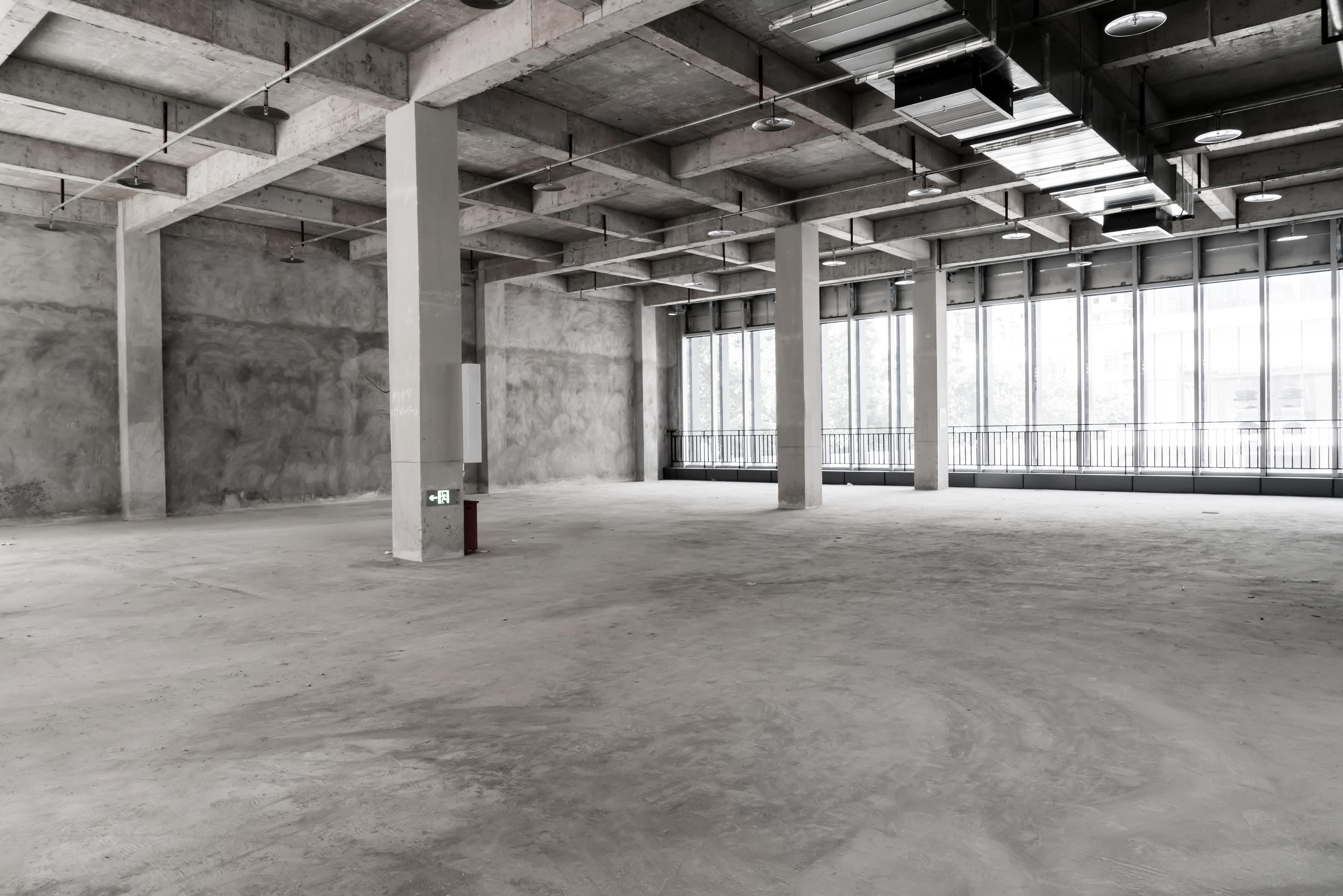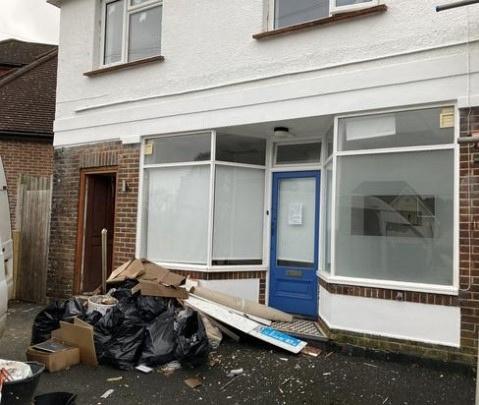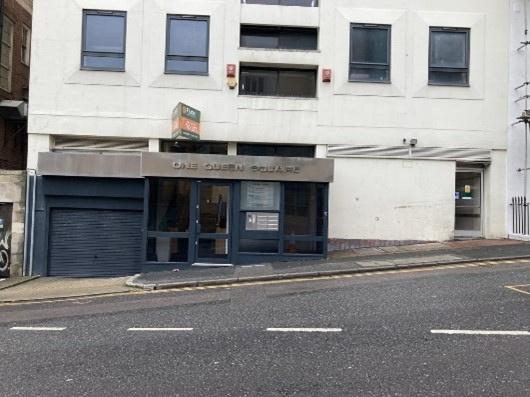
7 minute read
A bigger post pandemic issue - empty property protection
Y T R E P O R P
A POST-PANDEMIC BIG ISSUE
Advertisement
As the UK finally starts to open up again fully, it’s very apparent things are definitely not back to life as we knew it before Covid hit us and the country went into lockdown in March 2020. People are still apprehensive, and many fearful of yet another wave and the possibility of further restrictions again. The mutating virus makes planning and strategy almost impossible to get right, whether you are in Government or business.
For office-based staff, working life has changed. Although a lot of employees are gradually making their way back to their former desks, most seem to be operating under a hybrid arrangement of part remote/part office work and no one knows how long this will be the norm, or indeed if the classic Monday to Friday in an office, 9-5.30, will ever return. How this impacts on the commercial property market long term is something else unknown, but it is obvious many companies have started to terminate their leases as they realise staff can work remotely and the cost savings are enormous. Others are downsizing to smaller premises so there is all sorts of movement in the lettings market as tenants come and go and re-organise.
Apart from the change to our shopping habits, something which was already evident before the pandemic, lockdown has proved devastating to the nation’s high streets. Even before COVID-19, 2540% of retail space was no longer viable or needed. The demise of household names and familiar brands still continues apace but it is not just the big chains that have suffered.
Hospitality in particular has taken a serious hit, but so have a multitude of small independent retailers – the continued lockdowns and restrictions simply went on too long and people couldn’t hold out. At the start of 2021, it was estimated that some 50% of retail rents from 2020 remained unpaid and the UK’s high streets had lost more than 17,500 chain store outlets with an average daily closure of 48 shops, restaurants and other leisure and hospitality venues.
This crisis has not been simply down to change of retail habits or Government regulations. Without the bustle and daily business
brought by office workers to the local sandwich bars, pubs, dry cleaners, hairdressers and the host of other small retail outlets in the business districts of our towns and cities, they have become redundant, and some streets seem creepily deserted like a scene from some post-apocalypse movie.
All of this has resulted in countless vacant commercial buildings and retail units across the country. And, unfortunately and inevitably, this has provided a dream come true for anyone with either a nefarious or anarchic intention.
“Quite frankly, we’ ve never seen or experienced anything like it, ” says Gideon Reichental, Commercial Sales Manager of Clearway Services and Chair of the BSIA’s Vacant Property Protection section. “It’s both sad and very worrying and everyone suffers – tenants and landlords, not to mention the neighbouring properties where businesses are trying to keep going and attract customers again. We’ ve seen premises vandalised, fly-tipped, squatted, metal fixtures and roof coverings stolen for scrap, just about everything. We’ ve been hard put to keep up with demand to secure buildings for our clients, and unfortunately many have turned to us after the damage has been done… and of course that makes it even more expensive for them to get decent insurance cover. ”
“A lot of small shop units are owned by private landlords, and many are feeling beleaguered, hit hard financially, not having received rent since last year and unable to pursue or evict tenants who owe them money or have simply disappeared. Clearway ’s ShopShield package has been ideal for them when paying for security is a further stretch they know they need, but have trouble affording. As ever, it’s always about the deterrent factor which normally is all that is required to stop the opportunist, or mindless troublemaker. But every premises is different, so expert security advice and help is always the best bet. "

Vacant Property
Stuart Woolgar, CEO of Global Guardians, agrees. Global are London’s largest property guardian company. “It’s terrible to watch what has happened to some of our formerly thriving and busy city high streets and secondary shopping locations, as well as larger retail and business parks, ” he says, “ and no building or property seems to be off-limits to the threat of illegal occupation or petty vandalism. However, I’ ve always looked at problems like this with a slightly different eye. I firmly believe in the old proverb: one man’s misfortune is another’s opportunity, or words to that effect… and this is never more true than in the current climate where we seem to be surrounded by so much vacant property, but at the same time people are crying out for more affordable housing.
"This is particularly true in and around London where rents can be prohibitive and buying your own home beyond the mortgage capability of most. For our key workers, especially over the past year or more, the need to be near to their place of work, to do the punishing hours they ’ ve been putting in, has been critical.
"Who wants or needs a lengthy commute home to the distant suburbs when all that will give you is a few hours’ sleep before you have to get up and repeat the process… if you ’re even lucky enough to get home?”
cont. overleaf
Vacant Property
“This situation has been rising up the agenda for years, especially now large organisations in the public sector Government, local councils, the NHS, etc - are trying to centralise and economise and reduce their property portfolios; but a lot of these buildings are difficult to re-let as they are often old, purpose-built, or need considerable updating and refurbishment. Many are simply being sold off and demolished to make way for new housing or other development, and regrettably, often there isn’t enough affordable or social housing within the scheme. Obviously the financial dynamics of the deal are understandable, but sometimes there has to be a third way.
"I was really glad to read the new report by the Centre for Policy Studies in mid-July which shows that if just our unwanted retail space could be repurposed, it would potentially create at least 500,000 homes, or more if the space were converted into flats. ‘Reshaping Spaces’ also shows how allowing for mixed use regeneration could unleash tens of billions in private finance to “build back better” and level up left-behind high streets and commercial spaces across the UK.
Although coming at the same problem from different perspectives, the solutions of both property security organisations to this growing issue, and our decimated shopping streets, are all about affordable, practical and efficient security, and peace of mind for the property owner. Even if Government finally seems to be taking notice of the problem, it will still take a long while for change to come about. In the meantime, for Stuart especially, being able to provide accommodation for people on lower salaries, whether key workers or simply those in hospitality or retail or other similar low paid infrastructure jobs, is an added bonus. Global Guardians are happy to take over any unoccupied building, provided it has connected utilities. They will convert part of it to basic but comfortable living accommodation for lower than equivalent rents in the private sector nearby. In one fell swoop, the building is ‘ guarded’ and secured by responsible people, thereby preventing trespass and vandalism, whilst also providing safe and affordable homes to those in need.

Stuart calls it repurposing in the best way, and a great example of sustainability. For other sites, with different security issues, or shorter-term requirements, Gideon’s answer, ShopShield, or other options from Clearway ’s extensive offering might be more suitable. Easy, inexpensive, fast and practical. Sometimes, a mix of both could be an option, eg, if concrete blocks are needed to prevent the growing scourge of midnight fly-tippers in a car park, or wireless CCTV and alarms a good idea, but the key point is the deterrent factor. Visible security either by way of occupants or physical barriers. And of course, with that, other benefits follow: easier and possibly cheaper to insure in the first place, regular maintenance checks to stop deterioration of the fabric of the building making it easier to re-let, and a happy property owner who can get on with more important things knowing their building is in safe hands.
As the other old proverb goes, a problem shared is a problem halved, especially when you share the problem with experts. No matter how long the property world has to live with the diverse ramifications of Covid and ongoing change to the way we work and shop, securing our buildings, homes and business places has and always will be one of the most important and basic things security experts do.











